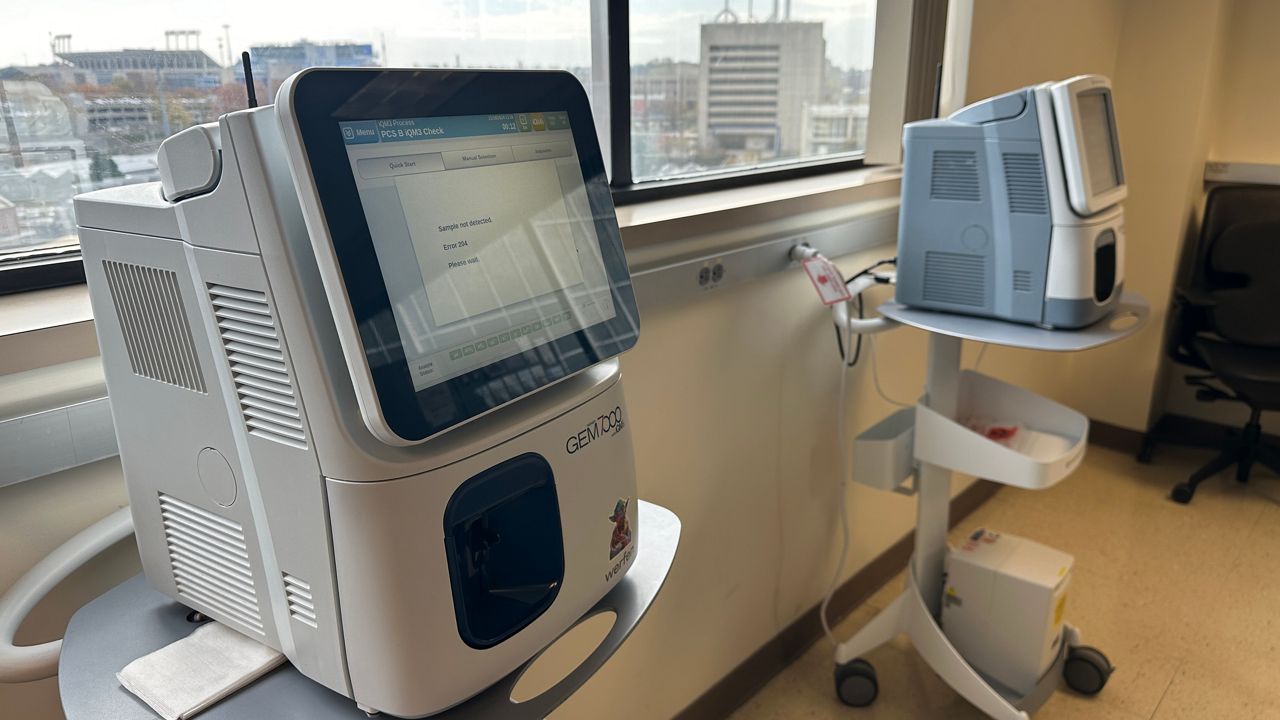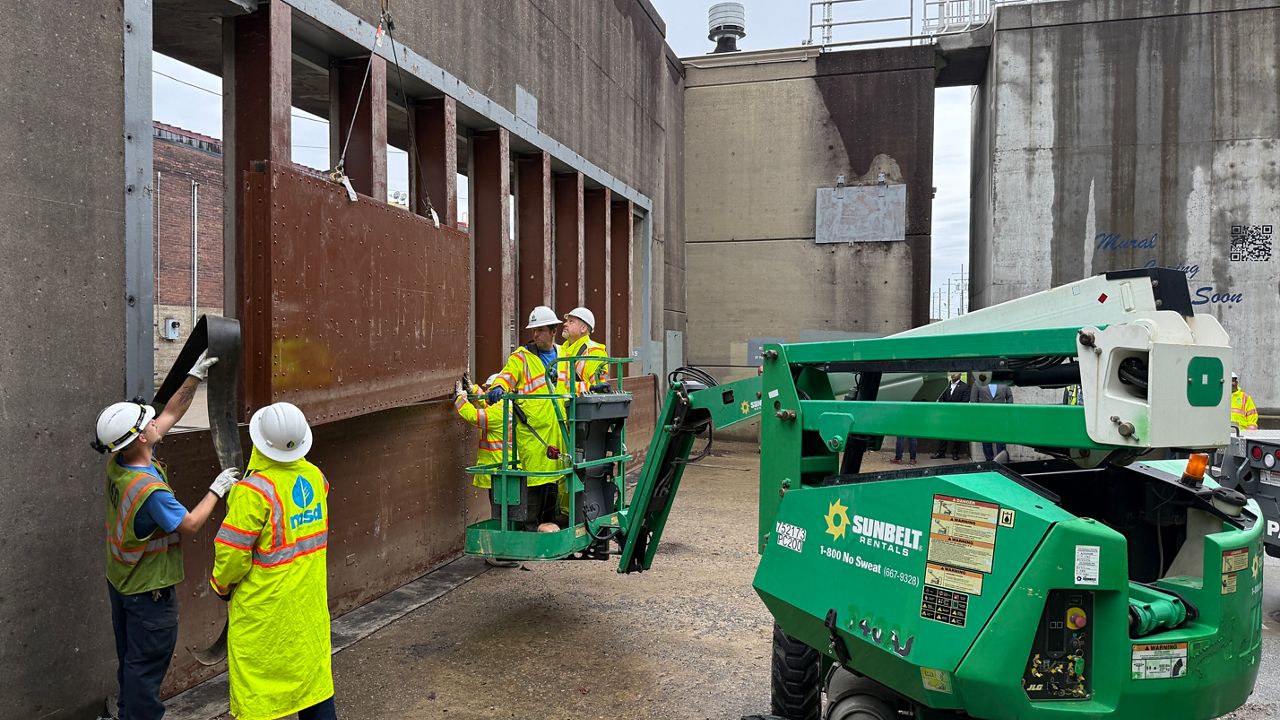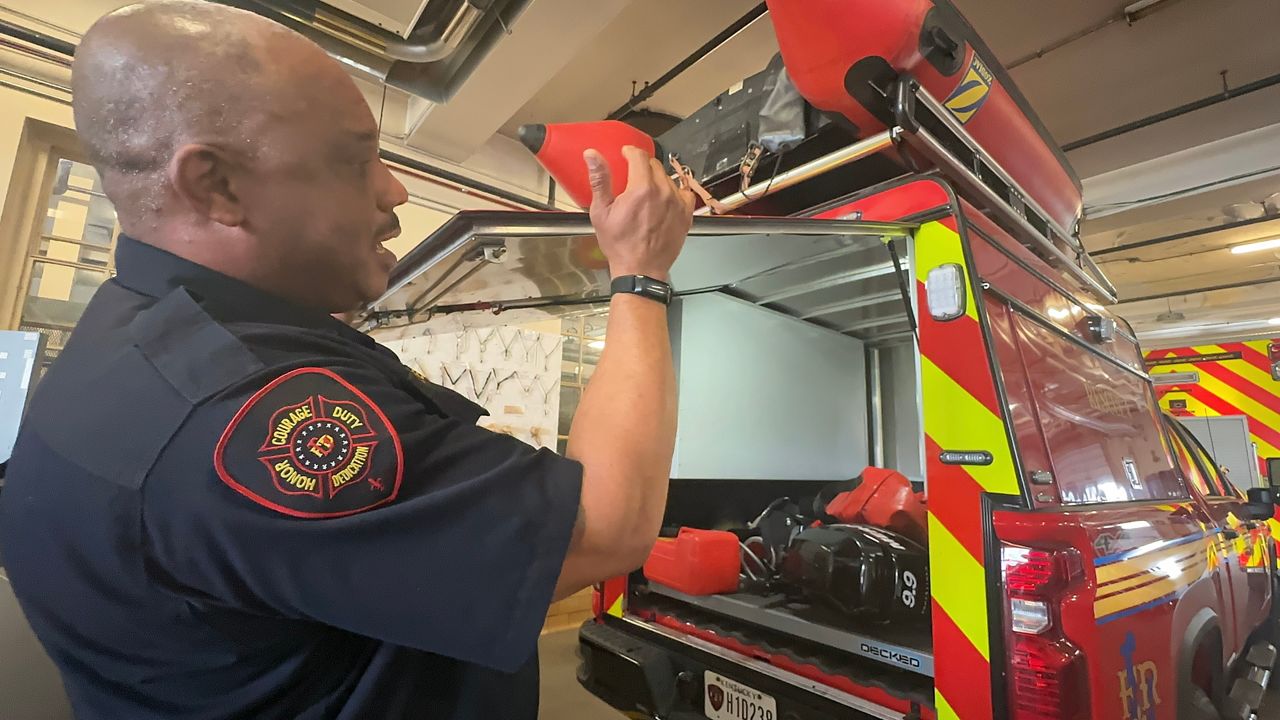LEXINGTON, Ky. — Government data shows 300,000 infants spend their early days in the Neonatal Intensive Care Unit (NICU) every year in the United States. Most of them require blood tests.
A breakdown of red blood cells, known as hemolysis, can often cause those tests to be inaccurate. The University of Kentucky’s NICU unit is using technology to combat this problem.
Welcoming a newborn baby is an exciting time for many families but can turn scary when babies end up in the NICU. An inaccurate blood test because of hemolysis can compound this stress.
“It’s a rupture of red blood cells,” said Robert Maynard, UK HealthCare assistant professor of point-of-care testing. “When these red blood cells rupture, they will release their contents into the blood. One of those being potassium, so that’s very high concentration in your blood cells.”
This can result in a baby not receiving correct treatment or needing another blood draw, both of which can be dangerous for a NICU baby.
“When you’re dealing with premature infants or just babies in general, you are limited to how much blood you can draw,” Maynard said. “You might need to make clinical decisions and treatment decisions based on that result. If you don’t know that it’s (hemolysis) there, that could go missed and negatively impact the patient.”

Maynard has led the charge to bring on new technology that analyzes blood. It’s called the GEM Premier 7000.
“We didn’t have the ability to see hemolysis in the specimen,” Maynard said. “Now, with every specimen that is tested, including in our NICU patients, we can detect if hemolysis is present, to what degree, and how that might be impacting the results in real time.”
NICU doctors at UK such as Sanchayan Debnath, assistant professor of neonatology, have implemented the new technology into their routine. It gets used every one to two hours in a day.
“We have two machines in the unit, and every single baby who’s admitted (to) the NICU who needs a blood test, we can run the blood test through that machine,” Debnath said.
He said it has been immensely helpful, as waiting on blood test results would take hours before the GEM Premier 7000.
"Now it is because of this machine we are getting it in less than one minute," Debnath said.
UK HealthCare is leading the way with testing this technology and is one of the first institutions to have access to it.













